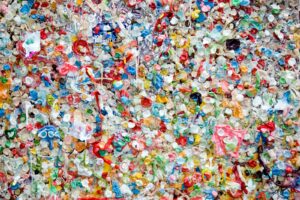Coffee retailers such as Starbucks and Costa Coffee have been under increased pressure to reduce the amount of waste created from disposable coffee cups, but a freedom of information request by the Press Association has revealed that the NHS has used over 600m disposable coffee cups since 2013.
The NHS use disposable coffee cups for hot and cold drinks, as well as for dispensing medicine.
The data follows the annual report from the chief medical officer, Prof Dame Sally Davies, which found that in 2016/17 over 590,000 tonnes from NHS providers in England alone was created, which is more than the entire municipal waste from some European countries like Cyprus and Luxembourg.
Her report also stated that it is a legal requirement for NHS trusts to consider the waste hierarchy and ‘strive to move away from disposal and progress to energy recovery, recycling, reuse and ultimately reduction/elimination.’
Hospitals are now reintroducing china crockery in a bid to reduce these numbers. The Royal Free London NHS Foundation Trust said: ‘This not only improves the patient experience but reduces waste volumes.’
Louise Edge, senior oceans campaigner at Greenpeace UK, said: ‘We all know we’re using far too much throwaway plastic, but these huge figures demonstrate just how out of control our relationship with single-use plastic has become.
‘In the last five years the health service has used half a billion disposable cups – they can’t all be captured and recycled, so it’s time for the government to step in and help suppliers find viable solutions.’
Dr Sue Kinsey, senior pollution policy officer at the Marine Conservation Society, said: ‘If it really is an impossibility to wash cups, at the very least the service should move away from using polystyrene, which is not easily recyclable, and move to a system where cups are collected and recycled.’
One London trust, Guy’s and St Thomas’, purchased almost 30m cups over the period.
A spokesman for Guy’s and St Thomas’ NHS Foundation Trust said: ‘Guy’s and St Thomas’ is one of the biggest trusts in the country and includes a large dental hospital where a high number of plastic cups are used in a clinical setting.’
















